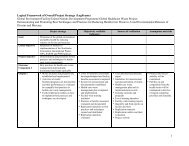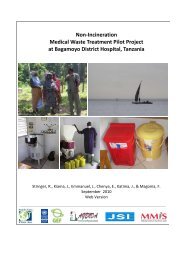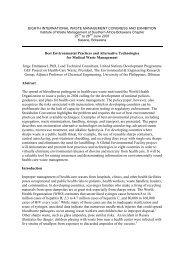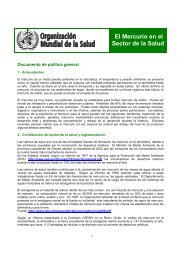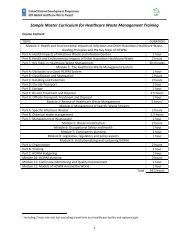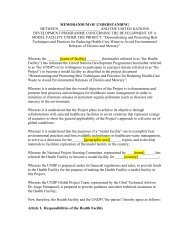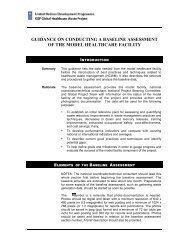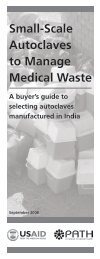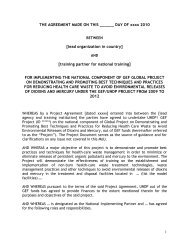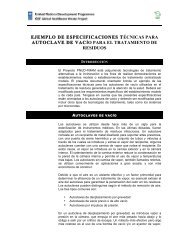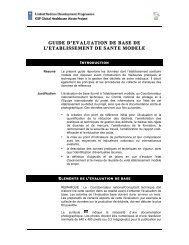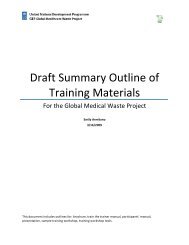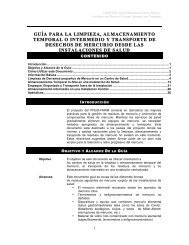Latvia
Latvia
Latvia
Create successful ePaper yourself
Turn your PDF publications into a flip-book with our unique Google optimized e-Paper software.
Health systems in transition<br />
<strong>Latvia</strong><br />
(28%) compared with those from non-<strong>Latvia</strong>n speaking households (21%).<br />
Fewer younger respondents (under age 50) felt they had all the information they<br />
needed (20%) compared to older respondents (30%). In addition, respondents<br />
from vulnerable social groups believed they were in a slightly better position<br />
with respect to information (27%) compared with non-vulnerable social groups<br />
(24%). Those who responded that they have all the necessary information were<br />
more likely to be from households that reported having sufficient income to<br />
meet their health care costs.<br />
The same survey results indicate that 40% of respondents receive their<br />
information about health care services from “nowhere”; the next largest group<br />
(24%) from the mass media, and the next largest (23%) from health workers.<br />
Complaint procedures (mediation, claims)<br />
The main institution whose task is to accept and check complaints is the State<br />
Health Inspectorate (the former State Quality Control Inspectorate for Expert<br />
Examination in Health Care and Ability to Work), under the Ministry of<br />
Health. The 1997 “Law on Medical Care” assigned this responsibility to the<br />
Inspectorate, which, with the help of experts, is to decide on the appropriateness<br />
of complaints, and has the right to fine or penalize providers, or transfer<br />
complaints to the state prosecutor’s office. In 2005, of 1309 complaints received<br />
by the Inspectorate, 243 were returned as sound. In 118 cases medical staff<br />
were administratively penalized.<br />
In addition, the 1997 “Law on Medical Care” along with other legislation<br />
specify provisions for the possibility of investigations into medical negligence<br />
by law enforcement bodies and by means of court litigation.<br />
According to the WHO Regional Office for Europe, this is an area that is<br />
not satisfactorily covered by the existing legislation (WHO Regional Office<br />
for Europe 2002). It is argued that the precise task of the Inspectorate, its<br />
functions, human resources structure and outcomes dissemination to medical<br />
practitioners, hospitals and citizens are not clear enough. Moreover, there is no<br />
adequate procedure for making complaints, no system to appeal a complaint,<br />
and no system for receiving compensation outside of the court system.<br />
Further, results of a survey indicate that <strong>Latvia</strong>ns are not well informed<br />
about complaints procedures (CIET 2002). Only 21% of respondents knew<br />
how to make a complaint about services received within the statutory system.<br />
Knowing how to make a complaint was associated with having knowledge<br />
about entitlements in health care: 30% of those with information about statutory<br />
services knew how to make a complaint, compared to 18% of those without<br />
adequate information. Moreover, there was no association between the use<br />
57



